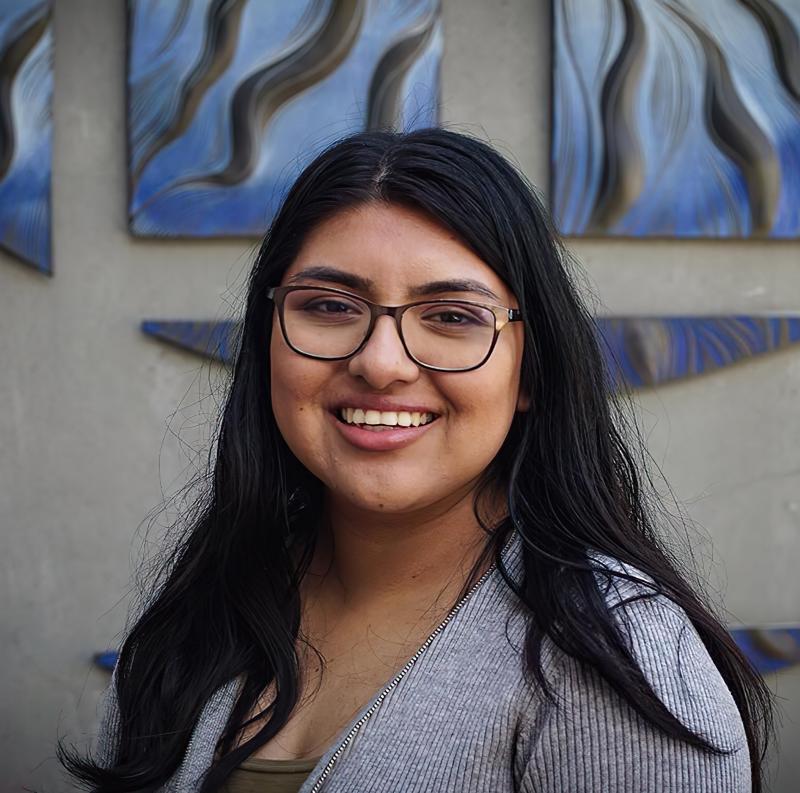Lesly Avendaño is a proud Oaxaqueña and community-college transfer student. She is a senior now studying Legal Studies. Throughout her life, she has advocated for minorities and even led a movement to support undocumented students. She is passionate about socioeconomic issues that affect her community. She has previously worked in research centered around the impacts of climate justice on womxn of color and Indigenous communities. She currently mentors community-college students, teaches law to youth, works for East Bay Community Law Center, and is passionate about working on her research project. She continues to harness her passions for social justice to impact laws and policies in the future. As she pursues her dream of attending law school, she continues to fight for workers’ rights, equity, education, and immigration issues.
Research Summary: Although the Bracero program ended in 1964, migration did not end there. The history of indigenous migration is one that has resulted in complex transnational identities and communities. The identities and migration of Oaxaqueñes is a key focus throughout this project as I seek to elevate the stories of this indigenous community. This study seeks to close the gap in the existing literature that links Oaxaqueñes’ demographics in farm labor to the Bracero Program. I will conduct semi-structured interviews with Oaxaqueñes in California. My research question is: How does the legal consciousness of the Oaxaqueñes reflect their roots in migration? By looking at migration as a catalyst for identity, I plan to use the following sub-questions: (1) How and to what extent has the Bracero Program shaped how Oaxaqueñes relate to the American legal system?; (2) How and to what extent do Oaxaqueñe farmworkers believe the Bracero Program shaped their political, economic, and legal identity; (3) How and to what extent has the migration shaped the transnational identities of Oaxaqueñes in California?; (4) How and to what extent do Oaxaqueñes identify with the political community in Los Angeles, Oaxacalifornia?; (5) How and to what extent do Oaxaqueñes understand themselves to be Californians (or citizens of California) legally and politically?
My research engages with literature on (1) the Bracero Program and its intersections with Oaxaqueñes, (2) Oaxaqueñe identities and communities, and lastly (3) legal consciousness. I first examine the literature on the Bracero Program in order to give context to migration and to show how the Bracero Program contributes to the legal, political, and transnational identities of Oaxaqueñes in California. The literature on Oaxaqueñe identities explores connections between how Oaxaqueñes understand themselves and their identities (legally and politically) in regard to their indigenous roots and migration. Within this literature, I will engage with the intersections between the Oaxacalifornia, a political community, and how it has shaped and maintained the identities of Oaxaqueñes in Los Angeles. The legal consciousness literature is useful in that it helps to explain how Oaxaqueñes perceive their legal identities. As a result of the Bracero Program, Oaxaqueñes have had complicated relationships with citizenship and the law both in México and the United States. The legal consciousness literature speaks to what “citizenship” means for Oaxaqueñes while also exploring how transnational identities navigate the legal system.
Major(s): Legal Studies
Minor(s):

